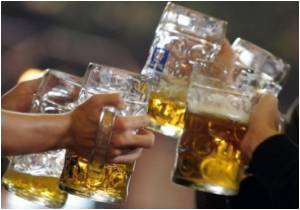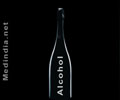
"We suspect that this very early adaptation of the brain to intermittent alcohol use helps drive the transition from ordinary social drinking to binge drinking and dependence," said Olivier George, PhD, senior staff scientist at TSRI and lead author of the study.
"This research is giving us a window into the early development of the addiction process," said the study's senior author, George F. Koob, PhD, chairman of the Committee on the Neurobiology of Addictive Disorders and co-director of the Pearson Center for Alcoholism and Addiction Research at TSRI.
The new study appears online ahead of print in the Early Edition of the Proceedings of the National Academy of Sciences the week of October 15, 2012.
Binge Drinking Versus Consuming a Little Every Day
Scientists have long known that alcohol dependence and other addictions feature striking changes in the brain. These include an overactivity of stress-related circuits and a weakening of the prefrontal executive control circuits that normally act as a brake on emotional reactions and impulsive behaviors. What hasn't been understood is the sequence of neural events by which these changes come about.
Advertisement
The team confirmed that the group of rats with intermittent access drank markedly more alcohol, on average, than those with continuous access after only six weeks. In tests conducted a few weeks later, during "dry" intervals between drinking bouts, the binge drinking rats scored poorly on measures of working memory, an essential element of executive control. Tests of their brain tissue also revealed that during these withdrawal periods—when the animals would have been expected to be craving alcohol—the prefrontal cortex seemed relatively disconnected from the structures it is meant to regulate, such as the emotion-related amygdala.
Advertisement
Source-Eurekalert















